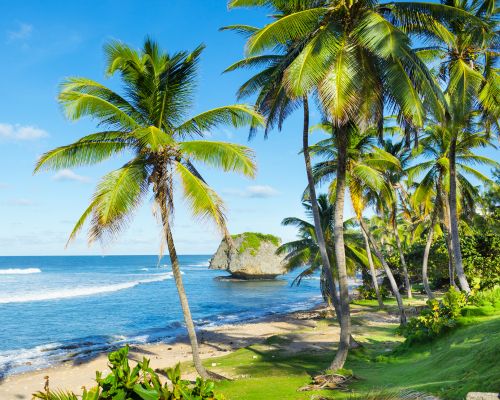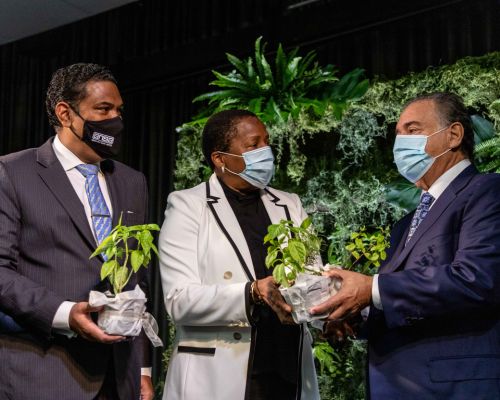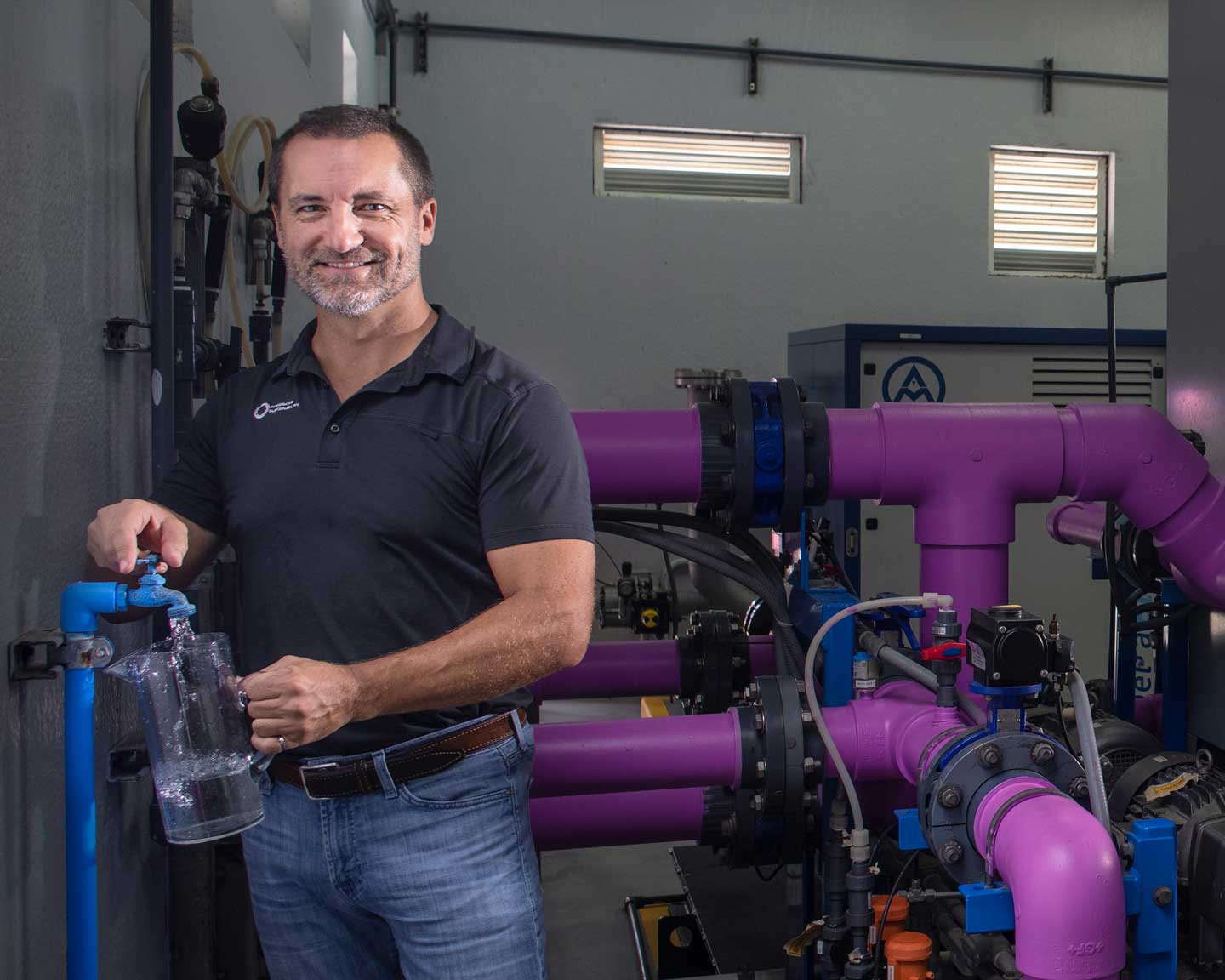.avif)
The Government of Barbados announced at the Summit for a New Global Financing Pact in Paris an integrated package of initiatives to accelerate its transition to net zero, boost resilience, enfranchise workers, and draw in private sector investment while managing public debt levels. These initiatives build on the ongoing climate policy reforms, supported by the Resilience and Sustainability Facility with the International Monetary Fund, which are expected to play an important role in mobilizing private and public sector financing for climate projects.
This package of initiatives reflects cooperation and a new "system approach" between the Government, its Resilience and Sustainability Facility (RSF) at the International Monetary Fund (IMF) and Barbados' long-standing financing partners; Inter-American Development Bank (IDB), World Bank Group (WBG), Development Bank of Latin America and the Caribbean (CAF), European Investment Bank (EIB), and Green Climate Fund (GCF).
Barbados is highly vulnerable to the impacts of climate change, and it needs to invest heavily to protect its citizens from hurricanes, flooding and droughts, and to preserve its natural capital. It is committed to achieving sustainable public debt levels, meaning that the government has limited borrowing capacity for public investments. To meet these challenges, it has identified four complementary approaches together with its financing partners.
A New Blue Green Bank
In a first of its kind, the Government of Barbados has decided to use US$10 million from the fiscal space created by the RSF as capital for a new Blue Green Bank.
This capital will support five times that lending amount. It will pave the way for other partners, including GCF, CAF and IDB, to support the Blue Green Bank through technical support or capitalization, with GCF proposing to its Board in July to become a co-founding partner in the bank.
Once established, The Blue Green Bank will help finance over US$250 million of green investments in affordable homes, hurricane-resilient roofs, the electrification of public and private transport, and other Paris-aligned investments.
More Resilient Infrastructure Through New Low-Cost, Long-Term Loan Instruments from Development Finance Institutions
Low-cost and long-term financing instruments from the EIB, CAF, IDB, GCF and RSF will support Government investment in resilient water and waste treatment infrastructure, flood and coastal protection and support its efforts to transform state owned enterprises and enfranchise workers.
The EIB has made available US$18 million of grants from the European Union (EU) to support climate-resilient water, sanitation, and clean ocean projects across the Caribbean to back a US$165 million loan facility.
The GCF will offer up to US$1.5 million in grants per project for end-to-end project preparations, innovation, and transformational impact, and to prepare investment proposals for further GCF funding.
Better and More Affordable PPPs
Barbados' multilateral financing partners will strengthen project preparation support to attract private investment in Private Public Partnerships (PPP) to build more resilient infrastructure. The IDB will support and help develop the Government's capacity and expertise in PPPs.
The World Bank Group's Multilateral Investment Guarantee Agency has made available investment guarantees to help reduce the cost of private sector financing.
The World Bank Group's International Finance Corporation will support Barbados in developing the first large-scale onshore wind project in the country and enhance the resilience of the grid.
Developing New Non-Debt Investments in Nature and Social Capital
The Government of Barbados is working with its development partners to build on the success of the 2022 Blue Bond with IDB and The Nature Conservancy, which released approximately US$50 million of new financial resources for marine conservation. Particular focus is on a new generation of instruments to support investments in nature and social capital.
Together, these initiatives will help Barbados meet its resilience objectives and protect its citizens, whilst helping transform the economy and protect its pristine natural environment.
Here's what some of the key figures behind these announcements had to say:
Prime Minister Mia Mottley of Barbados commented:
“Alongside new capital, innovative instruments, partnerships and new ways of working together are critical if we are to overcome the challenges posed by climate, pandemics and debt. These new, integrated, initiatives announced today are embodiment of what can come out of new cooperative ways of working together.”
Kristalina Georgieva, Managing Director of the International Monetary Fund, said:
“We welcome Barbados’ initiatives to catalyze private climate finance, and the related push to bring together multiple partners in pursuit of a common goal. The Fund is fully committed to supporting our members’ efforts to meet their climate goals—including through the Resilience and Sustainability Facility – and we look forward to our continued partnership with Barbados as the government takes steps to green the economy.”
Ilan Goldfajn, President, Inter-American Development Bank Group, said:
“The IDB has long been one of Barbados’ closest and most committed development partners. We are delighted to take advantage of this opportunity to collaborate with the IMF and other partners to build on our successful recent blue bond issuance, and promising experiences across the region with project preparation and structuring to help catalyze new and larger volumes of private financing for resilient climate smart investment. These and other innovative financing and support mechanisms will be crucial to help Barbados meet the challenges of a rapidly changing climate.”
Read the full press release from the IFC, and quotes from other stakeholders here.








-60.avif)
-41.avif)
-40.avif)
-7.avif)
-67.avif)


-9.avif)
-7.avif)






